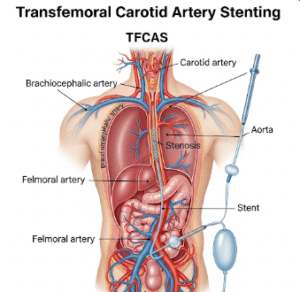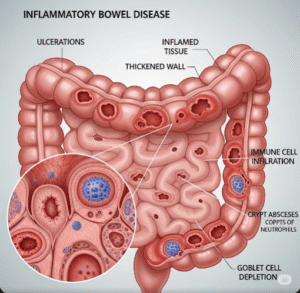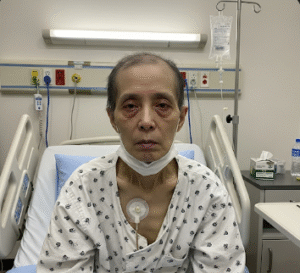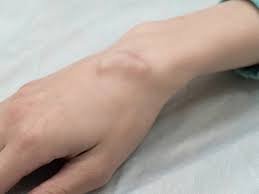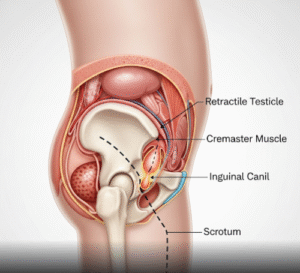➤ Overview
Tetany is a medical condition characterized by involuntary muscle contractions, spasms, and heightened neuromuscular excitability. These spasms most often affect the hands, feet, and facial muscles, but can involve other muscle groups. Tetany is a symptom rather than a disease itself and often signals an underlying metabolic or electrolyte imbalance.
In South Korea, tetany is evaluated by internal medicine specialists, endocrinologists, and neurologists. Prompt recognition and treatment are critical to prevent complications such as respiratory distress, seizures, or cardiac arrhythmias.
➤ Key Facts
→ Tetany often results from low calcium (hypocalcemia), low magnesium (hypomagnesemia), or alkalosis.
→ Symptoms can appear suddenly or gradually depending on the underlying cause.
→ It may be localized (fingers, toes, facial muscles) or generalized, affecting multiple muscle groups.
→ Tetany can indicate serious conditions such as hypoparathyroidism, vitamin D deficiency, renal failure, or respiratory alkalosis.
→ In Korea, laboratory tests and imaging are commonly used to identify the underlying cause.
→ Early treatment improves patient comfort, neuromuscular stability, and overall prognosis.
→ Severe tetany can lead to laryngospasm, seizures, or cardiac complications, requiring emergency care.
➤ What is Tetany?
Tetany is defined as involuntary, repetitive muscle contractions caused by increased neuromuscular excitability:
→ Carpopedal spasm – Flexion of the wrists and fingers, sometimes accompanied by ankle and toe contraction.
→ Facial muscle twitching (Chvostek sign) – Tapping the facial nerve triggers contraction of facial muscles.
→ Trousseau sign – Inflating a blood pressure cuff induces spasms in the hand.
→ Generalized muscle cramps – Affecting arms, legs, or torso in severe cases.
→ Sensory disturbances – Tingling, numbness, or burning sensations in extremities.
In Korea, physicians evaluate the pattern, severity, and triggers to differentiate tetany from other neuromuscular disorders.
➤ What Symptoms are Related to Tetany?
Tetany often presents alongside other neuromuscular and systemic symptoms:
→ Muscle cramps and spasms → Hands, feet, face, and occasionally trunk muscles.
→ Paresthesia → Tingling, numbness, or “pins and needles” in fingers, toes, or around the mouth.
→ Fatigue or weakness → Secondary to sustained muscle contractions.
→ Anxiety or irritability → Due to discomfort and neuromuscular excitability.
→ Seizures → In severe hypocalcemia or electrolyte disturbances.
→ Cardiac arrhythmias → Palpitations or irregular heartbeat in electrolyte imbalance.
→ Laryngospasm or breathing difficulty → Life-threatening if untreated.
→ Chvostek and Trousseau signs → Classic clinical indicators of tetany.
➤ What Causes / Possible Causes?
Tetany arises from conditions that alter calcium, magnesium, or pH balance:
→ Hypocalcemia – Most common cause, may result from hypoparathyroidism, vitamin D deficiency, or renal failure.
→ Hypomagnesemia – Low magnesium levels reduce neuromuscular stability.
→ Alkalosis – Respiratory or metabolic alkalosis increases neuromuscular excitability.
→ Hypokalemia – Low potassium levels can exacerbate tetanic symptoms.
→ Hypoparathyroidism – Reduced parathyroid hormone disrupts calcium homeostasis.
→ Vitamin D deficiency – Impairs calcium absorption, contributing to tetany.
→ Renal disease – Chronic kidney disease affects calcium, phosphate, and vitamin D metabolism.
→ Post-surgical causes – Thyroid or parathyroid surgery may precipitate hypocalcemia.
→ Medications – Certain diuretics or chemotherapy drugs can trigger electrolyte imbalances.
➤ When Should I See My Doctor?
Medical attention is required for sudden or persistent tetany, especially if accompanied by:
→ Severe or generalized muscle spasms.
→ Tingling, numbness, or facial twitching.
→ Shortness of breath or laryngospasm.
→ Seizures or loss of consciousness.
→ Signs of cardiac arrhythmia or palpitations.
→ Tetany following surgery or medication use.
→ Persistent or recurrent spasms interfering with daily activities or sleep.
In Korea, emergency or outpatient care ensures rapid diagnosis and stabilization of electrolyte or metabolic disturbances.
➤ Care and Treatment
Treatment of tetany focuses on correcting the underlying cause and alleviating symptoms:
→ Calcium supplementation – Oral or intravenous calcium in cases of hypocalcemia.
→ Magnesium replacement – Oral or IV magnesium if hypomagnesemia is present.
→ Vitamin D therapy – Corrects deficiencies to improve calcium absorption.
→ Electrolyte correction – Potassium or phosphate replacement as needed.
→ Alkalosis management – Treat underlying cause of metabolic or respiratory alkalosis.
→ Symptomatic relief – Muscle relaxants, supportive care, and reassurance.
→ Monitoring vital signs – Continuous monitoring in severe cases to detect arrhythmias or respiratory compromise.
→ Education and lifestyle guidance – Dietary calcium and magnesium intake, sun exposure for vitamin D, and medication compliance.
➤ Treatment Options in Korea
South Korea provides advanced evaluation and treatment for tetany and its underlying causes:
Diagnosis in Korea
→ Laboratory tests – Serum calcium, magnesium, potassium, phosphate, and parathyroid hormone levels.
→ Blood gas analysis – Assessment of metabolic or respiratory alkalosis.
→ ECG monitoring – Detect arrhythmias caused by electrolyte imbalance.
→ Imaging – Ultrasound or MRI if neuromuscular or renal causes are suspected.
→ Specialist consultation – Endocrinology, nephrology, and neurology for complex cases.
Medical Treatments in Korea
→ Emergency IV calcium or magnesium for acute tetany.
→ Oral supplementation – Long-term correction of chronic deficiencies.
→ Medication adjustments – Review of diuretics, chemotherapy, or other drugs affecting electrolytes.
→ Symptomatic management – Muscle relaxants, analgesics, and supportive care.
Advanced Therapies in Korea
→ Post-surgical care – Monitoring and supplementation after thyroid or parathyroid surgery.
→ Integrated care teams – Endocrinologists, nephrologists, and ICU specialists for severe cases.
→ Patient education programs – Dietary planning, medication adherence, and early symptom recognition.
Rehabilitation & Support in Korea
→ Guidance for preventing recurrent tetany through lifestyle and nutritional support.
→ Monitoring for complications such as fractures, arrhythmias, or chronic muscle issues.
→ Psychological support for patients experiencing pain, anxiety, or neuromuscular discomfort.







